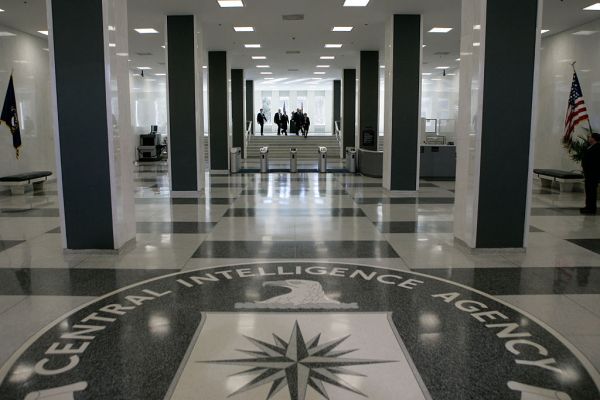Viral social media posts claim that the Department of Defense issued a directive allowing the U.S. military to use lethal force on political protesters in the U.S.
“The Biden/Harris administration has just pushed through DoD Directive 5240.01 giving the Pentagon power — for the first time in history — to use lethal force to kill Americans on U.S. soil,” says one version of the claim.
Former presidential candidate Robert F. Kennedy Jr. popularized the claim, forwarding it during an October 23 rally in Duluth, Georgia, and again in a viral X post with more than 9.9 million views.
“The Biden-Harris administration has done something, two weeks ago, that has never been done in American history, which is to send—exactly, lethal force—to send a directive to the Pentagon changing a law to make it legal for the US military to be used, to use lethal force against American citizens on American soil,” Kennedy said at the rally. “Technically, now it’s legal, the U.S. military—under this directive—it will become legal for the U.S. military to shoot and kill Americans who engage in political protest because they disagree with policies of the White House.”
Podcaster Joe Rogan, who has 14 million followers on Spotify, also repeated the claim during a recent episode of his popular show. “That is a terrifying thing to push through for the first time in U.S. history,” Rogan said of the directive. Other versions of the claim have also spread widely on social media platforms since last week.
The claim, however, is false. The directive in question—DoDD 5240.01—does not authorize the U.S. military to suppress political protests or use lethal force on American citizens.
According to its text, the directive applies only to components of the DOD responsible for gathering, analyzing, and disseminating intelligence such as the National Security Agency. Section 3.3 of the directive states that those intelligence components must be granted approval by the secretary of defense before providing some forms of assistance to civilian law enforcement agencies. One of these categories is defined as any form of assistance where lethal use of force may be a possibility, such as support for civilian law enforcement agencies in situations when confrontation with a civilian is likely to occur:
Assistance in responding with assets with potential for lethality, or any situation in which it is reasonably foreseeable that providing the requested assistance may involve the use of force that is likely to result in lethal force, including death or serious bodily injury. It also includes all support to civilian law enforcement officials in situations where a confrontation between civilian law enforcement and civilian individuals or groups is reasonably anticipated. Such use of force must be in accordance with DoDD 5210.56, potentially as further restricted based on the specifics of the requested support.
While this section discusses lethal force, it does not grant the military power to use force on U.S. soil. In an October 25 article for Just Security, Joseph Nunn and Elizabeth Goitein—lawyers at the Brennan Center’s Liberty and National Security Program—explained that the directive did not represent a change in pre-existing DOD authority and did not override the longstanding legal prohibition in the U.S. of military involvement in domestic law enforcement.
“Directive 5240.01 does not provide any new authority to deploy the military domestically; nor could it. … A directive cannot make lawful an activity that does not have some legal basis either in statute or in the president’s powers under Article II of the Constitution,” Nunn and Goitein write. “Directive 5240.01 thus cannot, and by its own terms does not purport to, override the restrictions of the Posse Comitatus Act, which bars federal military forces from participating in law enforcement unless doing so is expressly authorized by Congress.”
The authorizations made in DoDD 5240.01 are not new, having originated from a 1982 directive issued in response to a 1981 executive order authorizing federal intelligence agencies to cooperate with and provide assistance to civilian law enforcement. Before the 2024 revision, the original directive was replaced by new versions in 1988 and 2007.
The DOD also responded to the rumors directly last week. “The policies concerning the use of force by DOD addressed in DoDD 5240.01 are not new, and do not authorize the DOD to use lethal force against U.S. citizens or people located inside the United States, contrary to rumors and rhetoric circulating on social media,” Pentagon spokeswoman Sue Gough said in a statement to the Associated Press.
If you have a claim you would like to see us fact check, please send us an email at factcheck@thedispatch.com. If you would like to suggest a correction to this piece or any other Dispatch article, please email corrections@thedispatch.com.







Please note that we at The Dispatch hold ourselves, our work, and our commenters to a higher standard than other places on the internet. We welcome comments that foster genuine debate or discussion—including comments critical of us or our work—but responses that include ad hominem attacks on fellow Dispatch members or are intended to stoke fear and anger may be moderated.
With your membership, you only have the ability to comment on The Morning Dispatch articles. Consider upgrading to join the conversation everywhere.